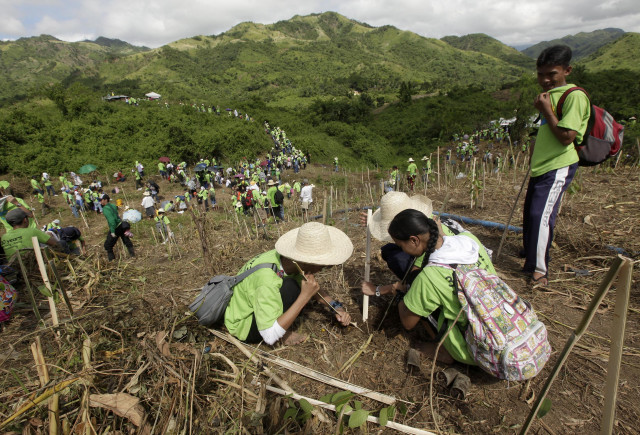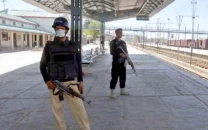Regional cooperation: ‘Climate change bigger threat than wars’
Lums VC says effects of global warming already felt in Pakistan.

Regional cooperation: ‘Climate change bigger threat than wars’
People in South Asian countries are already experiencing the adverse affects of climate change. Policy making in these countries needs to take into account issues pertaining to natural disasters and climate change so that living conditions do not further deteriorate, Lahore University of Management Sciences vice chancellor Prof Adil Najam said on Friday.
He was speaking at the first day of the World Economic Forum’s Young Global Leaders Indo-Pakistan Cooperation Initiative.
He said sustainable development practices should be adopted to ensure that damage from natural disasters was mitigated. He said efficient management of water resources was a prerequisite for avoiding food and energy shortages and disease outbreaks in future.
Referring to a research study, Prof Najam said South Asian countries in the coming days would be threatened more by natural disasters than wars.
Earlier, Malini Mehra, the Centre for Social Markets and YGL chief executive officer in India, said India and Pakistan needed to work together to deal with climate change and natural disasters.
She said the two countries could identify issues that needed mutual cooperation and share information on them so that the security of future generations could be ensured.
The event started with a welcome address by Lums associate professor Dr Umar Saif. Beaconhouse School System CEO Kasim Kasuri then gave a presentation on the young global leaders.
Other speakers on the occasion included World Economic Forum Asia head Sushant Palakhurti Rao, University of Vermont’s Institute for Environmental Diplomacy and Security director Saleem H Ali, Norwegian Peace-building Resource Centre consultant Michael Renner, Provincial Disaster Management Authority director general Khalid Sherdil, Consortium on Strategic Risk Management for India convener Professor N Vinod Chandra Menon, Journalist and Broadcaster Isabel Hilton, Asian Disaster Preparedness Centre, Bangkok, Department of Disaster Risk Management Strategy head Aslam Perwaiz, Journalist Beena Sarwar, Friends of the Earth Middle East’s Yana Walid Abu-Talib and The Express Tribune publisher Bilal Lakhani.
The two-day event is a joint venture of the Pakistan and India chapters of the Young Global Leaders. The two organisations had first come together following last summer’s floods in Pakistan. A follow-up to the current conference would be held in November 2011 at the WEF’s India Economic Summit in Mumbai.
Published in The Express Tribune, July 9th, 2011.



















COMMENTS
Comments are moderated and generally will be posted if they are on-topic and not abusive.
For more information, please see our Comments FAQ